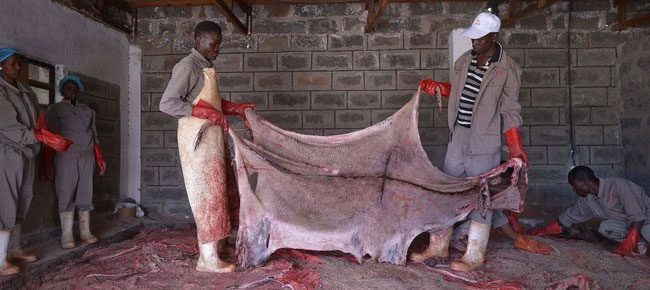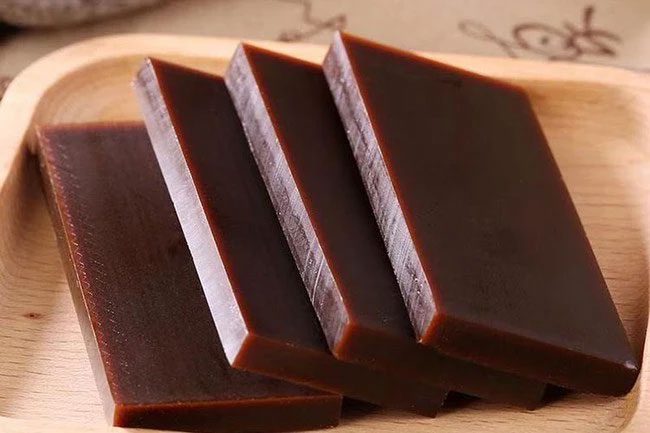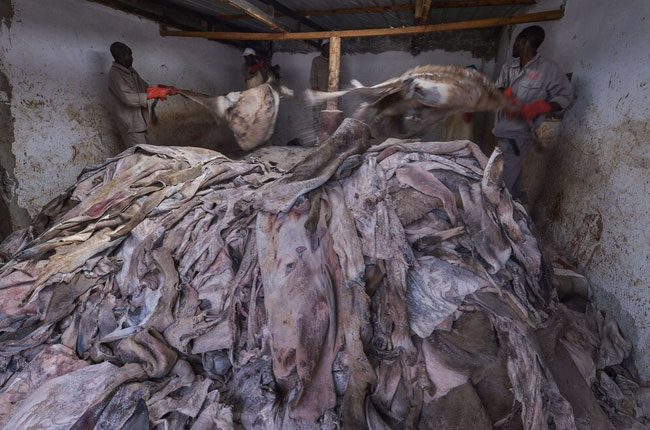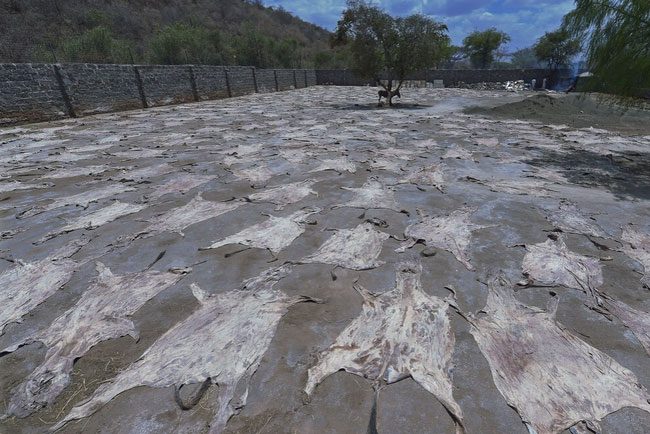Donkey hide is used to make e’jiao – a traditional remedy that is 2,500 years old but has suddenly gained popularity after appearing in a Chinese television series.
In Africa, donkeys are highly valued for helping people transport water and goods, with some owners even considering them as “soulmates.”
However, about a decade ago, increasing demand from China for donkey hide began to sever this vital lifeline. Donkey hide is used to make e’jiao – a traditional remedy that is 2,500 years old but has suddenly gained popularity after appearing in a Chinese television series.
Made from gelatin extracted from donkey hide, e’jiao is now marketed to women as a blood tonic that is said to enhance fertility, alleviate dizziness, insomnia, and other ailments, although there is very little reliable scientific evidence to support its effectiveness.
E’jiao has also become a popular ingredient in beauty products, including face creams and moisturizers.

E’jiao is made from gelatin extracted from donkey hide. (Photo: BBC).
Liu Guangyuan, vice president of Dong’e E’jiao, the largest e’jiao producer in China, stated: “E’jiao is one of the three great treasures of traditional Chinese medicine, alongside deer antler and ginseng.”
The history of e’jiao dates back to around the 2nd century BC. It is said that in the 19th century, Empress Dowager Cixi of the Qing Dynasty used e’jiao to ensure a safe pregnancy, giving birth to a child who later became an emperor. Since then, many have spread word of its miraculous properties.
After becoming a sensation in modern Chinese society, this brown gelatin, with a strong odor, is sold in the Chinese market as a “miracle drug” at exorbitant prices. One gram of e’jiao in 2007 cost $47, more expensive than gold.
Meanwhile, according to a report by Foreign Policy in 2017, 250g of e’jiao, resembling a chewy chocolate bar, was sold for up to $350 per piece (in special cases, the price could be ten times that).

Chinese people consider e’jiao a miracle drug. (Photo: Native Chinese).
The “Fever” Sweeping Africa
The biological characteristics of donkeys make it impossible to breed them en masse like livestock. Meanwhile, China’s emerging e’jiao industry consumes between 2.3 to 4.8 million donkey hides each year, mostly sourced from Africa as domestic supplies have gradually dwindled.
In just two decades, China’s donkey population – once the largest in the world – has decreased from 11 million to less than 6 million, while the average GDP per capita has increased nearly tenfold (from over $1,800 in 1995 to over $14,000 in 2015).
The process of migration has significantly reduced the demand for donkeys in rural China, but increasing wealth in urban areas has spurred demand for consumer products like e’jiao. As a result, the volume of donkey hides imported from developing countries has surged.
As slaughterhouses opened across Africa to meet the growing demand from China, donkey theft also began to rise, undermining communities and families that depend on them.
Across the African continent, the price of donkey hides has skyrocketed. Where donkeys once sold for $8 each, due to demand from China, the price has surged to $150 each, creating an illegal economic niche that profits tens of millions of dollars each year.

The high demand for donkey hides in China has led to rampant smuggling in Africa. (Photo: National Geographic).
From Nigeria to South Africa, the smuggling of donkey hides for Chinese traders has become commonplace. Criminal groups scour rural areas looking for those willing to sell donkey hides while evading export bans and regulations on when and how to slaughter animals.
“Chinese importers began asking for donkeys in 2014,” said a former undisclosed trade advisor from South Africa, “There are seven companies, each looking to buy about 10,000 donkey hides per year. This is a huge opportunity for rural economic development, but there is no framework to support legal trade. And when you can’t go through legal channels, you go through the mafia.”
Outside of Africa, several countries in Asia have also seen opportunities in the rising demand for donkey hides in China. Government officials from Khyber Pakhtunkhwa province in Pakistan have proposed exporting 80,000 live donkeys to China each year as part of the China-Pakistan Economic Corridor.
Pakistan is one of nine countries that ban the export of donkey hides for religious reasons, as donkey meat is taboo for many people in the country. There are concerns that if only donkey hides are exported, the remaining donkey meat will be sold in markets under the guise of beef. Therefore, to circumvent the law and seize opportunities from China, Khyber Pakhtunkhwa province has devised a plan to export live donkeys.
Risk of Spreading Deadly Diseases
Not only is the issue of donkey hide smuggling concerning, but the Chinese “miracle drug” craze also poses a risk of spreading deadly diseases from Africa to Asia.
According to a report from the Donkey Sanctuary, a UK-based nonprofit organization, genetic testing of hides taken from a slaughterhouse in Kenya revealed positive samples for African horse sickness and MRSA – a group of antibiotic-resistant bacteria.

Scientists are concerned that the Chinese “miracle drug” craze carries the risk of spreading deadly diseases from Africa to Asia. (Photo: National Geographic).
Simon Pope, head of investigations at the organization, stated that this is the first solid evidence showing that donkey hides could act as a disease vector worldwide. The trade in hides is no longer a hypothetical risk to humans and animals.
According to Faith Burden, an infectious disease specialist at the Donkey Sanctuary, in Africa, donkeys often travel hundreds of miles to reach slaughterhouses, crossing national borders. When they arrive, the veterinary and biosecurity measures there often do not meet standards to detect sick donkeys.
“People buy e’jiao as a health supplement, but I don’t think they would continue to buy it if they knew how it was actually produced,” Pope said, noting that there is a stark contrast between the promotional images in China (where donkeys play around lush plateaus with crystal-clear streams) and the harsh reality at slaughterhouses in Africa.


















































